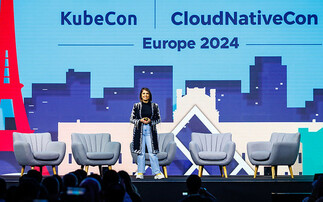Companies offering services on Amazon's AWS infrastructure accuse the online giant of copying their work
More companies are complaining of unfair competition from Amazon Web Services (AWS), suggesting that Amazon has created AWS-based services similar to their own, pricing them aggressively in a bid t...
To continue reading this article...
Join Computing
- Unlimited access to real-time news, analysis and opinion from the technology industry
- Receive important and breaking news in our daily newsletter
- Be the first to hear about our events and awards programmes
- Join live member only interviews with IT leaders at the ‘IT Lounge’; your chance to ask your burning tech questions and have them answered
- Access to the Computing Delta hub providing market intelligence and research
- Receive our members-only newsletter with exclusive opinion pieces from senior IT Leaders




















